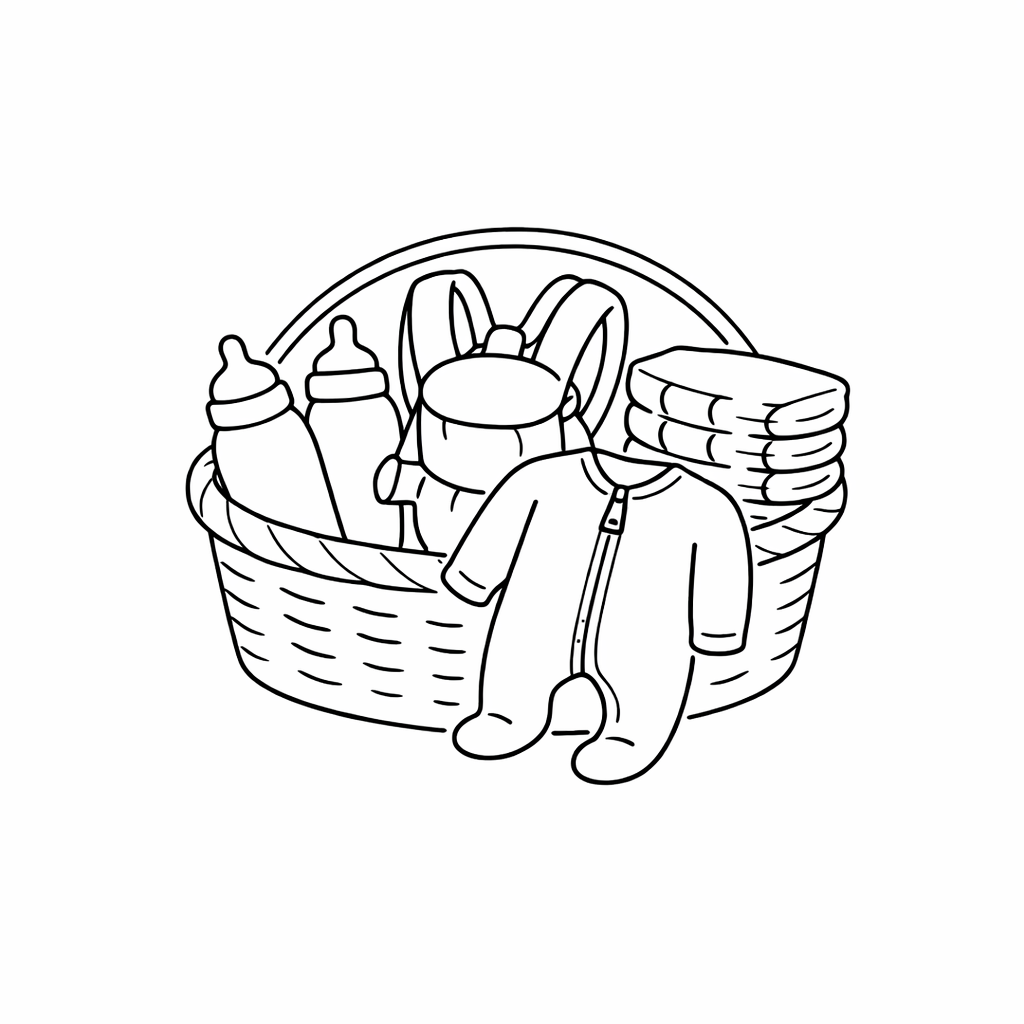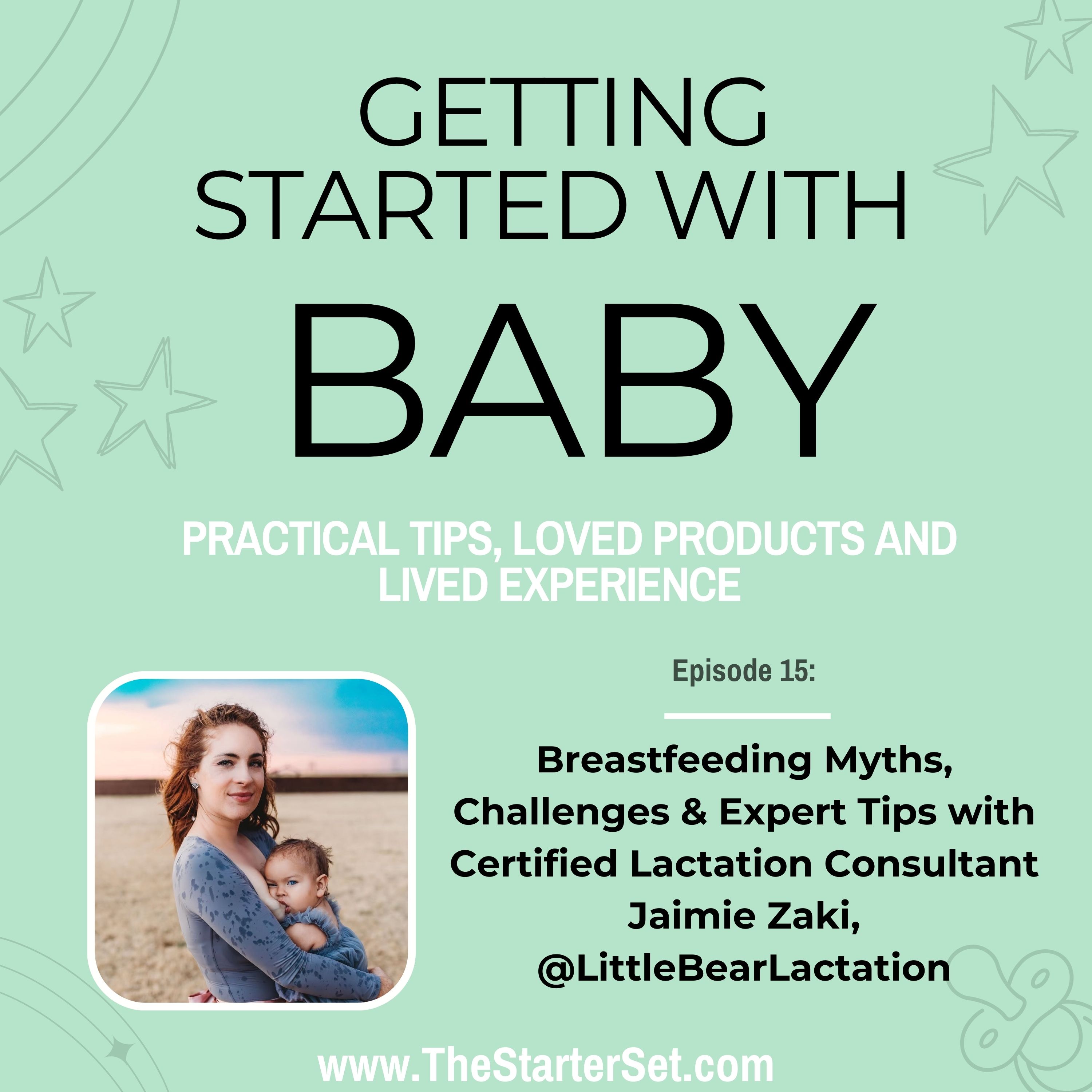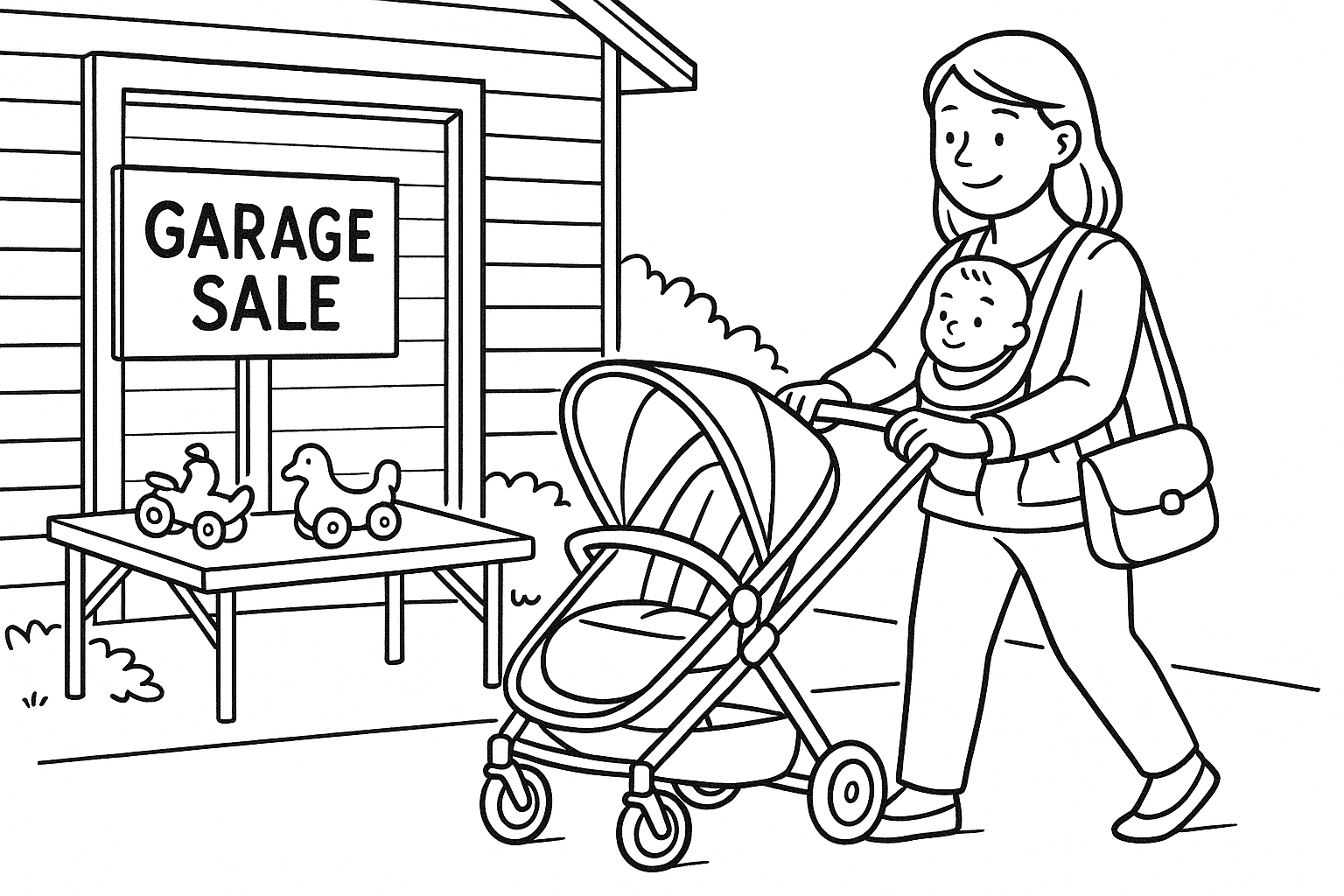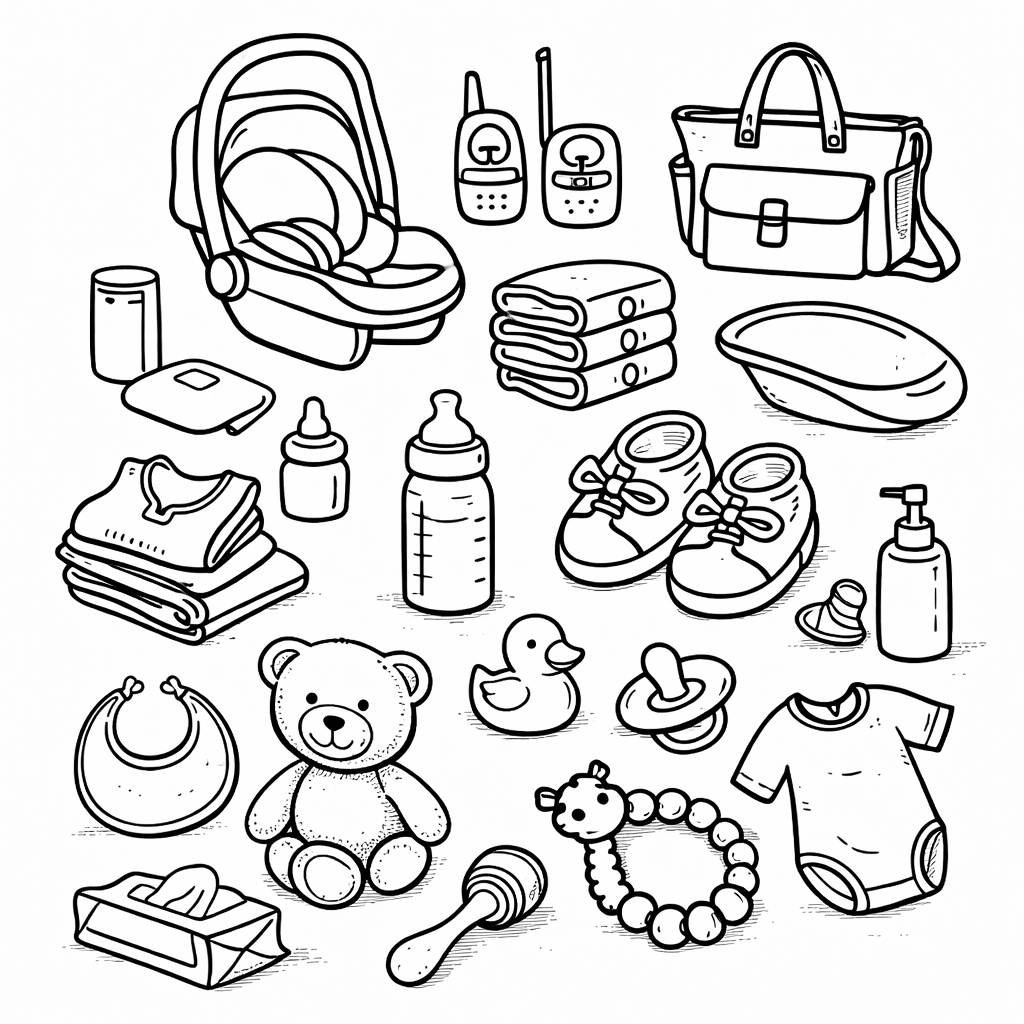Whether you've been referred for a fetal heart screening or not, hearing the title pediatric cardiologist might make you a bit nervous. Not to worry, though. In this episode, pediatric cardiologist and father of two, Dr. Sonny Duong, takes us through what parents really need to know about heart screenings, from why you might get a fetal echocardiogram (hint: it's usually just precautionary) to what actually happens if something is found. But this conversation goes beyond medical facts—Dr. Duong shares the parenting wisdom he's gleaned from years in pediatrics, including why the strict routines that help nurses manage five babies at once can transform your sleep struggles at home.
Note: Information in this episode is based on personal experiences and is provided for educational and entertainment purposes only. Information in the podcast does not constitute personal professional advice. We encourage you to independently evaluate any content and consult with appropriate professionals as needed for your specific circumstances.
Getting Started with Baby Podcast
A Few Key Quotes
On the reality of pediatric cardiology referrals:
"If you are referred to a pediatric cardiologist, first of all, take a breath. It's going to be okay. The chances are overwhelming that most referrals don't have a significant issue, and that the ones that do we’ll work through it." — Dr. Duong
On parenting lessons from pediatrics and the NICU:
" One of my mentors who's a pediatrician said the key to parenting is limit setting and consistency...kids are super flexible. They'll get used to any sort of environment you put around them…That's something you learn in the neonatal ICU—it's super regimented because there's one nurse taking care of five babies and they do all the same things on a schedule all the time." — Dr. Duong
On fetal screening statistics:
"Just because you're told that you need to get screened with a fetal echocardiogram, you have to understand that the risk of there actually being something is still thought to be pretty low...if you have a 2% chance, it still means that 98% of the time there's nothing found." — Dr. Duong
On becoming a parent as a doctor:
"Something I didn't realize before I had a child was how hard it actually is to do some of these things that I'm recommending to parents... It's given me real appreciation for something like prescribing medicine. You write down 'here's a three times a day medicine' —that's so easy to write down, but it's the hardest thing in the world to actually do." — Dr. Duong
The Takeaways
- Most pediatric cardiology referrals find nothing serious: Even when you're referred for fetal screening, remember that if your risk is 2-3%, that still means there is a 97-98% chance everything is normal.
- Congenital heart defects are rare but manageable: True congenital heart disease affects only 0.6-1% of live births, with only about a quarter requiring surgery. Of those, only half are potentially life-limiting. When serious defects are found, specialized heart centers have interdisciplinary teams including surgeons, social workers, and support staff to guide families. You won’t find a heart center everywhere though, so if you need one, look at your options and consider ones that have good outcome records.
- Fetal echocardiograms are increasingly common: You might be referred for fetal heart screening for many reasons—family history, medication exposure, IVF pregnancy, diabetes requiring insulin, or simply difficulty visualizing the heart during routine scans. This doesn't mean something is wrong; it's preventive screening to identify any issues early when intervention can be most effective.
- Most urgent issues are caught before birth: Fetal screening is remarkably good at detecting major heart defects that would need immediate intervention after birth. Outside of the newborn period, very few heart conditions require emergency surgery within weeks, giving families time to plan and connect with appropriate specialist teams.
- Connect with other families who've been through it: One of the most helpful resources for parents facing a heart defect diagnosis is meeting families with older children who have successfully navigated treatment. Most heart centers can connect you with these families and provide social work support to help you access all needed resources.
- Consistency and routine work for young children: Watching nurses manage multiple babies in the NICU helped reinforce that maintaining consistent routines, especially around sleep are crucial—lean on regular bedtimes and controlled, consistent sleep environments.
Baby Product's Mentioned in this Episode
- Consistent Sleep Setup - Whatever swaddles, cribs, sound machines you choose, maintain the same setup every night to reinforce healthy sleep patterns through environmental cues.
The Full Conversation
[edited from audio transcript for clarity]
Jane Dashevsky: On today's episode, we're excited to bring you our conversation with Dr. Sonny Duong, a pediatric cardiologist. If you're a parent or expecting a little one, maybe that title alone makes you nervous, but don't worry. Today we'll talk through what exactly a pediatric cardiologist does, when you might see one, and what to expect if you do. But not just that—we also talk about the lessons Sonny's learned from pediatrics that apply to his own parenting, like what he's seen in the neonatal intensive care unit and how that's translated to the sleep routines he maintains for his own family.
Welcome to the podcast.
Dr. Sonny Duong: Thank you so much. I appreciate you inviting me here to talk.
Jane: To get started, could you tell us a little bit about your background, your family, yourself?
Dr. Duong: I'm a dad of two boys—they're aged four, almost five, and one, almost two. I live in New York City. I've been practicing as an attending pediatric cardiologist for the past three years, and before that, I was a general pediatric hospitalist for a couple of years. We trained for what felt like forever as doctors, went through the whole training circuit in Pittsburgh and California, and ended up in New York to do one more year of training and stayed there.
Jane: How did you get into pediatrics in general and then pediatric cardiology as a specialty?
Dr. Duong: As a med student, I really enjoyed working with families and this patient population. It's a more vulnerable population—kids obviously can't care for themselves. There are high rates of poverty and disparities in that population. I was drawn to serving this somewhat underserved population. And it's a field of highs and lows. Having a very sick child is one of the saddest things someone can ever deal with, but there's also a lot of joy. Some people's happiest moments are in places like the delivery room.
Jane: I'm sure for many parents, they're not necessarily encountering pediatric cardiology regularly. Under what circumstances might you see a pediatric cardiologist and what does a pediatric cardiologist do?
Dr. Duong: About 50% of my practice is dealing with patients born with a heart defect. To put it in perspective, these are rare conditions in the grand scheme of things, but they're conditions that require a lot of care when you're born with them. Congenital heart disease is the most common congenital heart defect, but it still affects only about 0.6 to 1% of all live births. Of those, only about a quarter are the more significant type that might require heart surgery. And maybe half of those are the types that could potentially be life-limiting or life-altering. When you crunch the numbers, it's about one in a couple thousand that have a very significant issue requiring a pediatric cardiologist.
The other 50% of my practice are those we're screening to make sure they don't have heart disease. This is where many more people have contact with pediatric cardiologists. We do a lot of screenings because heart defects are the most common congenital defect. This is typically picked up when a doctor listens to your chest with a stethoscope, listening for heart murmurs. A common reason to see a heart doctor is when someone's pediatrician has heard a heart murmur and wants to make sure the patient doesn't have a heart defect.
My specialization is in imaging of the heart. We do ultrasounds of the heart and ultrasounds of fetuses in utero. Fetal screening for congenital heart disease is a big part of my practice and many pediatric cardiologists' practices. The reason this is important is there's a lot of evidence showing that if you can identify a serious heart condition early, you can put mechanisms in place to intervene successfully after the baby's born, and it's very educational and important for parents' decision-making to know ahead of time.
Jane: Is fetal echocardiogram becoming more common?
Dr. Duong: There are lots of reasons to be referred for a fetal echocardiogram, and many people might not know they're getting one because their OBs might be doing them too—there's variation in practice nationwide.
In general, there are many indications to look for congenital heart disease. Medication exposures are a common reason for referral. Having a family history of congenital heart disease is another common one. Sometimes when obstetricians are having trouble seeing the heart—which can happen because people come in different shapes and sizes—they can also get a fetal echocardiogram. There's a whole list of other things like having diabetes requiring insulin injections that will lead you to need a fetal echocardiogram.
A fair amount of people do end up getting fetal echocardiograms, especially in today's era where it's much more accessible than it used to be. To get technical about stats—if something has more than three times the baseline risk of having congenital heart disease, then you should probably get a fetal echocardiogram. If the baseline risk is half a percent or 1%, then if you're referred for a fetal echocardiogram, your pretest chance of having something might be 2 to 3%. That's still a low percentage.
We've decided from a public health perspective that a 2% chance is high enough that it's worth getting a fetal echocardiogram. It still means 98% of the time there's nothing found. Just because you're told you need screening with a fetal echocardiogram, you have to understand the risk of there actually being something is still thought to be pretty low—unless they're doing an anatomy scan, which all babies get these days, and they see something they're concerned about.
Jane: That's helpful information because even getting an extra referral is anxiety-inducing in itself.
Dr. Duong: I see that every day. Parents can come in two flavors when they hear "it's just a screening." Modern maternity involves tons and tons of tests, so for some it's just another in the bucket. But some people get very anxious about it, and it can partially be how the OBs communicate this to patients.
Jane: It's pretty common to get referred for this for IVF as well, right?
Dr. Duong: IVF is a very common indication for fetal echocardiogram screening. We don't actually know precisely why, but there is a higher rate of congenital heart disease in IVF pregnancies. From a public health perspective, it's been decided that all IVF patients should be screened.
Jane: You mentioned you have two kids. How did becoming a dad impact how you think about your work?
Dr. Duong: If you're having a first child and getting introduced to the world of pediatricians and all the rules and recommendations around having a baby, it can seem random, especially if you don't have a medical background. The pediatrician's job is to relay these recommendations because they're based in science.
Something I didn't realize when I was doing this before I had a child was how hard it actually is to do some of these things I'm recommending to parents. It's given me real appreciation for something like prescribing medicine. You write down "here's a three-times a day medicine"—that's so easy to write down, but it's the hardest thing in the world to actually do. And if you say it has to be taken before food and not one hour after a meal, it's like the hardest thing for a parent to do, especially when you have a baby that's feeding every three hours or kids with three meals and two snacks a day.
That type of thing is totally lost on young pediatricians who don't have kids. I have much greater appreciation for that now. I'm not diminishing the recommendations that organizations like the American Academy of Pediatrics make because they are important—I do follow them for my own children—but I have a greater sense of why it might be viewed as hard to do some of these things.
Jane: That's such a good and generally applicable point, because I can't even get my kids to take Tylenol when they might need it. What about the other way around? Have some of the things you've seen as a pediatric doctor impacted the things you bring to your own parenting at home?
Dr. Duong: Oh yeah, it has definitely improved empathy and communication, having your own child. I do take a lot of the lessons I learned as a doctor home. I'm very strict about things like sleep and feeding.
In med school, one of my mentors who's a pediatrician said the key to parenting is limit-setting and consistency. I find that to be one of the most challenging things to adhere to, but it works. The reason it works is that kids are super flexible—they'll get used to any sort of environment you put around them. Making sure it's very clear that they know the boundaries of their behavior and environment, and making sure it's known every time they cross that boundary—almost all children can adapt to that, maybe more than a new parent might think.
That really applies to my parenting technique on sleep. I think sleep is an area that a lot of parents have trouble with, and perhaps I'm just lucky—maybe I'm coming at this from a privileged standpoint of having two children that were pretty good sleepers. But the philosophy of limit setting and consistency means things like very consistent bedtimes, very consistent bedtime routines, very consistent controlling of the environment they're sleeping in. Things like noise machines work very well, consistent swaddles, consistent beds, no co-sleeping.
Those types of things really can put babies—which in many ways, very young babies under two months are like little bags of reflexes—into mental states to get ready for sleep. That's something you learn in the neonatal ICU. The NICU is super regimented because there's one nurse taking care of five babies and they do all the same things on a schedule all the time. That's how they get through it, and taking a little bit of that philosophy home works.
Jane: So you took that away just from your experience working or observing the neonatal care unit—that consistency and routine really do have a positive effect?
Dr. Duong: Yeah. I mean it's almost a trite statement, but kids really do need consistency. Little infants, toddlers, young children in particular all really need consistency because they need to know where the edges of their world are so they can operate well within that space, in my opinion.
Jane: Going back into pediatric heart issues—we talked about how they're often detected in utero. You mentioned that in a lot of cases, the other 50% are detected sometime later, sometimes at the pediatrician appointment and then referred. What are some of those things that can happen where it wasn't detected in utero and develops later?
Dr. Duong: Fetal echocardiogram screening is remarkably good at catching most major congenital heart defects, but there are categories of heart defects that are more commonly missed. Whenever you get a fetal echocardiogram, there are disclaimers all over the wall, and one of the very first things I say is that everything looks normal, but there's a list of things I can't tell you are absolutely normal because of technology limitations.
The types of things that can be missed are changes in structures that are normal in fetal life but are supposed to go away in childhood or infancy after birth. Sometimes those structures don't go away—they can leave holes in the heart or extra vessels where they're not supposed to be, or narrow vessels that you couldn't tell were there before because other structures were present. You can miss holes in the chambers of the heart.
Those types of things tend to be less serious in terms of prognosis implications, and they tend to be the types that can resolve on their own without any intervention at all. Having a fetal echocardiogram that is normal greatly reduces the chances of significant congenital heart disease—it's nothing but reassuring. But it is possible that after a baby's born, a pediatrician will listen to the baby's heart and hear a sound they don't usually hear—a heart murmur—and that might end up with a referral to a pediatric cardiologist.
Most major congenital heart defects present in the first couple months of life. After about six months to a year, the chances of picking up a suddenly very serious congenital heart defect is pretty low.
Jane: In the event that something is detected, obviously that can be a really scary moment for parents. What ends up happening? Where do they go from that diagnosis and what can they typically expect?
Dr. Duong: The things that need to be relayed to parents in those situations are the expected prognosis, because there's a wide range of possibilities. Congenital heart disease can have a very wide range of presentations. Some are life-limiting, some require multiple heart surgeries, and depending on resources and life stage, there can be consideration of whether it's futile to intervene. It can be that extreme, but it's usually not like that. Those are the hardest conversations we have.
Usually, it's more like there are good repairs—congenital heart repairs that require heart surgeries or sometimes more rarely cardiac catheter procedures that can help or alleviate whatever the issue is. I'm being vague because there's a very wide range of potential defects out there. But if there's something requiring intervention, the next step would be to meet an interventionalist, like a cardiac cath doctor or cardiac surgeon. I'm not a cardiac surgeon—I look at pictures of the heart and make diagnoses, but there's a whole heart center team at many medical centers that care in an interdisciplinary fashion for patients.
There's a bucket of disease where we can't tell right away if something needs to be done. There's a chance that during growth it will declare itself within a year or two or three, that it needs to be fixed. That's very common with holes in the heart, which are a very common heart defect. They can sometimes go away on their own and sometimes they don't. That's something you might wait and watch for a while.
It's either referred for intervention or continuing to watch—that's vague but true.
Jane: It sounds like the urgency can also vary.
Dr. Duong: Outside of the fetal period, there's very little so urgent that you would need heart surgery within a couple weeks –outside of the very young newborn age. That's why we do all this fetal screening—to make sure there's nothing very emergent. If there is, then we're ready for it and have a plan when the baby is born.
Jane: Even so, I imagine that being on this journey as a parent is probably fairly stressful. Are there things you've seen that are helpful for parents trying to manage the stress and anxiety of an experience like this?
Dr. Duong: It's helpful to meet a parent that has an older child, at least five or six years old, that may have been through heart surgery. What I hope you'll find is that the parents are doing great. The kid's doing great. They have a great family. They went through it. They got through it. There's a scar on the chest, but they're going to grade school, doing all the things—happy, active child, because that's usually how it is.
Most heart centers have social workers and teams of people that are really good at plugging people into the resources they need to get through this. Depending on where you live, it can be a long time in a hospital far from home if you're not close to a surgical center. Heart centers are not all over the country. Getting resources for you to be able to get through all that—that's what we're all here for.
Jane: I imagine in that situation, having that staff at that heart center or social worker to navigate all that complexity is probably pretty useful.
Dr. Duong: Yeah. It's a key part of the interdisciplinary heart center because by nature, pediatric cardiology is personalized. Every heart defect is different; it requires personalized solutions and personalized care. There are a lot of centers out there, but the ones that function really well build teams of people. A team might be different than your typical experience with the medical care system where you go to one doctor to get your surgery and then never see them again. That's not how it is with heart defects, which are lifelong conditions requiring many different minds thinking about the problem.
Jane: If there was one thing you wanted somebody to take away from this conversation, what would it be?
Dr. Duong: If you are referred to a pediatric cardiologist, first of all, take a breath. It's going to be okay. We're going to get through it. The chances are overwhelming that most referrals don't have a significant issue, and the ones that do, we'll work through it.
If you find yourself in need of pediatric cardiology, I'll say as a side note that there aren't pediatric heart centers everywhere. Finding the right teams of people with good outcomes—if you do need surgery—is important to think about as well, because these are conditions that are highly specialized and require specialized care.
Jane: Thank you so much for sharing that. I think that's going to be super useful information for parents out there, and I really appreciate you taking the time.
To learn more about congenital heart disease, you can checkout the CDC website on congenital heart defects: https://www.cdc.gov/heart-defects/.










.png)